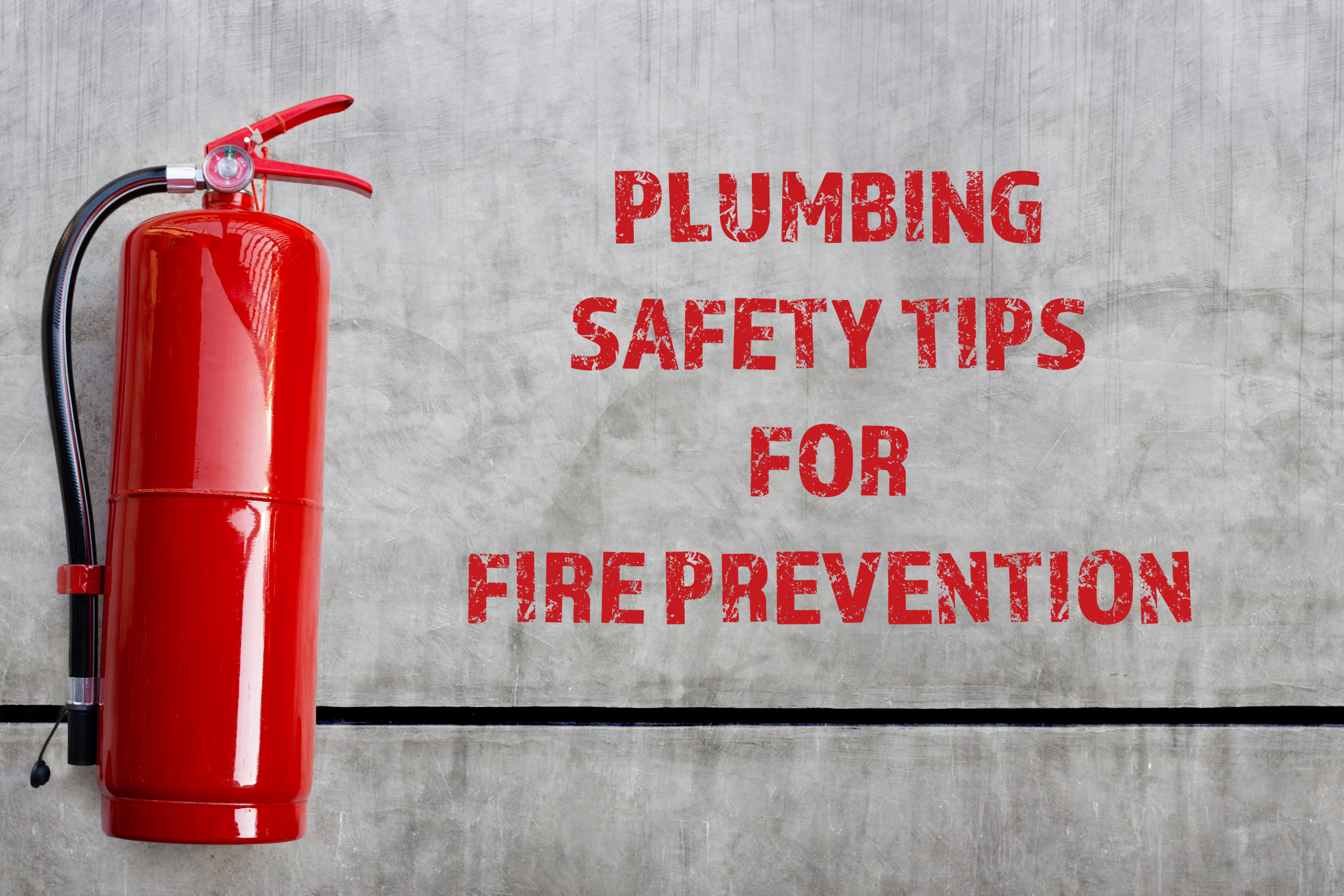Did you know that October is fire prevention month? It was first established as National Fire Prevention Week in 1922 to commemorate the Great Chicago Fire, but it was later expanded to include the entire month. On average, there are about 358,500 house fires that occur a year. Around 5,400 of those fires are a result of water heaters! Now, in no way does this mean that water heaters are outright dangerous. But we want to make it a point to highlight that improper practices and negligence of your water heater can be detrimental if left unchecked.
Join your Beavercreek Plumbing & Drain family as we walk you through all you need to know about water heater fire prevention.
WHAT ARE THE DIFFERENCES IN RISKS BETWEEN GAS OR ELECTRIC WATER HEATERS?
Before we get into safety tips, let’s talk about gas and water heaters and their differences. Their sources are not the same, but the way they operate and their internal mechanics are more or less very similar. So, does one take precedence over the other in terms of safety? While this may be a discussion that is up for debate, it’s better to understand their sources and how they work.
Gas Water Heaters: Gas water heaters use natural or propane gas to heat water. This means that leaking gas can lead to flammable vapor. So, the chances of a vapor-induced explosion are more probable if a gas leak occurs and the flammable vapor comes into contact with the ignition flame. The good thing is that new water heater models are typically sealed at the bottom, which keeps the ignition flame protected and barred from coming into contact with flammable vapors. To err on the side of safety, it’s always best to use a Carbon Monoxide & Explosive Gas Detector in your home, no matter how old your water heater is. These hybrid alarms can detect carbon monoxide and natural gases, such as methane and propane.
Electric Water Heaters: On the other end, electric water heaters utilize electricity as their source, so you will want to be watchful for signs of overheating or electrical fires. There could be a few reasons your water heater is overheating. Click here for more information. However, if your water heater’s temperature is above 140ºF, try turning it down; if that doesn’t resolve the issue, it’s time to call a professional. (It is usually recommended that water heaters stay set between 120ºF & and 140ºF.)
WHAT ARE SOME SAFETY TIPS FOR WATER HEATER FIRE PREVENTION?
1. Keep flammable materials away from your water heater and its surrounding area. Many water heaters are placed in garages, so it is common for these items to be located nearby. These include, but are not limited to:
- Paint cans or canisters
- Empty gasoline containers
- Oily rags
- Other household chemicals or even some cleaning products
- Cardboard boxes
- Stacks of paper or other flammable materials, such as fabric
- Wood furniture
- Plastic bottles
*In addition, if your water heater is, in fact, inside of your garage, please be mindful if you store things like your lawn mower in your garage as well. Although it is not an empty gasoline container, most lawnmowers require gas to run. So, placing an appliance filled with any amount of gas near a water heater is a huge fire hazard.
2. Know how to turn off the water heater. You may not need to think about it until you find yourself at a crucial moment where you need to act quickly. But knowing how to turn your water heater off beforehand may prove more valuable than you think.
3. Keep the space around your water heater clutter-free. We talked about not keeping flammables nearby, but in general, it’s not a good idea to clutter the area around your water heater with any items. Think of it in terms of “breathing space.” You want your water heater to have sufficient breathing room so air can flow as needed. Items stacked around or in front of your water heater will prevent proper airflow from happening and are a genuine fire hazard.
4. Schedule your annual plumbing inspection. Having a professional plumber inspect your plumbing system once a year is critical to preventative care. There are many components that make up your plumbing system. When you book a plumbing inspection with Beavercreek Plumbing & Drain, our expert plumbers thoroughly check all your plumbing equipment, such as pipes, drainage systems, sinks, toilets, showers, water heaters, and other plumbing-related appliances. Having this inspection done will help ensure everything is working as intended and can help detect potential problems that can turn into much larger (and dangerous) issues down the road.
Remember, it’s all about practicing safety and maintaining proper care regarding your water heater. Give us a call to learn more about our Whole Home Protection Plan. We’ve got you covered when it comes to keeping your home and HVAC system in tip-top shape!
Stay safe and call Beavercreek Plumbing & Drain for all your plumbing needs to book your annual inspection today at (937) 404-6575, or schedule an appointment online now by clicking here!




